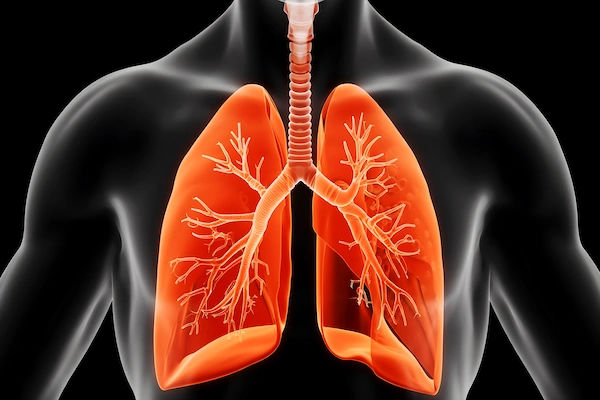Guide to Myths About Weight Loss And Obesity
Separate fact from fiction with our comprehensive guide to common myths about weight loss and obesity. Learn the truth about metabolism, diet, and exercise to achieve your health goals effectively.


Introduction
Navigating the world of weight loss can feel like walking through a minefield of conflicting advice. Every day, a new fad diet emerges, promising miraculous results, while old myths about obesity continue to persist. This misinformation often leads to frustration, failed attempts, and a damaged relationship with food and your body. But what if you could cut through the noise? This guide tackles the most common and damaging myths about weight loss and obesity, replacing them with evidence-based facts. We'll explore the science of metabolism, the truth about carbs and fats, and the complex factors that influence your weight. Our goal is to empower you with knowledge, moving you from confusion to clarity on your journey to better health.
Myth 1: Weight Loss is Simply "Calories In vs. Calories Out"
This is perhaps the most pervasive of all weight loss myths. While the fundamental law of thermodynamics (energy balance) is true, the human body is not a simple calculator. The "calories in, calories out" model is a drastic oversimplification that ignores the complex hormonal and metabolic processes that regulate how your body uses energy.
The Role of Metabolism and Hormones
Two people can eat the same number of calories but experience vastly different results based on their metabolic health. Hormones like insulin, leptin, and ghrelin play a huge role. For instance, eating 100 calories of soda (high in sugar) causes a rapid spike in blood sugar and insulin, promoting fat storage. Conversely, 100 calories from broccoli (high in fiber) has a minimal impact on blood sugar and promotes satiety. This is a key insight into how hormones affect weight, demonstrating that not all calories are created equal.
Why the Quality of Calories Matters
Focusing solely on calorie counting can lead you to choose processed "low-calorie" foods that are devoid of nutrients and leave you hungry. A sustainable approach prioritizes nutrient density—getting the most vitamins, minerals, and fiber per calorie you consume. This is why understanding the difference between weight loss and fat loss is crucial; you want to lose fat while preserving muscle, not just see the number on the scale drop from losing water or muscle mass.Consult Top Specialists
Myth 2: All Carbohydrates Are the Enemy
The low-carb craze has villainized an entire macronutrient category. This myth ignores the critical distinction between different types of carbohydrates, which is essential for healthy ways to lose weight and maintain energy.
Refined Carbs vs. Complex Carbs: Understanding the Difference
• Refined Carbs: These are found in white bread, pastries, sugary drinks, and other processed foods. They are stripped of fiber and nutrients, leading to rapid digestion, blood sugar spikes, and subsequent crashes that trigger hunger.
• Complex Carbs: Found in whole grains, legumes, fruits, and vegetables, these are packed with fiber, vitamins, and minerals. Fiber slows down digestion, preventing blood sugar spikes and keeping you full and energized for longer. They are a cornerstone of any sustainable diet.
The Importance of Fiber for Weight Management
Fiber is a powerhouse for weight management. It adds bulk to your diet without adding calories, feeds the beneficial bacteria in your gut (which is linked to a healthier metabolism), and helps regulate blood sugar. Eliminating all carbs means missing out on this essential nutrient, which can actually hinder your long-term efforts.
Myth 3: Losing Weight is All About Willpower
This myth is not only false but also deeply harmful. It places the entire blame for obesity causes on the individual, ignoring powerful biological and environmental factors. Willpower is a finite resource, and it's no match for primal biological drives.
The Biological Drivers of Hunger and Cravings
Your body has a sophisticated system designed to protect you from starvation. Hormones like ghrelin (the "hunger hormone") and leptin (the "satiety hormone") signal your brain to eat or stop eating. In individuals who have lost weight, research shows that ghrelin levels increase and leptin levels decrease, creating a persistent biological urge to eat more to regain the lost weight. This is a physiological response, not a moral failing.
How Sleep and Stress Sabotage Your Efforts
Lack of sleep and chronic stress are two major saboteurs. Poor sleep disrupts the balance of ghrelin and leptin, increasing hunger. It also increases cortisol, a stress hormone that can promote abdominal fat storage. High stress levels also drive emotional eating and cravings for high-calorie comfort foods. If you're constantly wondering, "why am I not losing weight?" look at your sleep and stress management before questioning your willpower.
Myth 4: You Can Target Fat Loss from Specific Areas (Spot Reduction)
The dream of doing endless crunches to get a flat stomach is just that—a dream. Spot reduction is a concept not supported by scientific evidence. Your body mobilizes fat from stores throughout your body in a pattern determined primarily by genetics, gender, and hormones.
How the Body Actually Mobilizes Fat Stores
When you create a calorie deficit, your body breaks down triglycerides from fat cells for energy. However, it draws from a global fat pool, not from the area you're working. You cannot control where this fat comes from. For most men, the abdomen is often the first place fat is stored and the last place it's lost. For many women, it's the hips and thighs.
The Right Way to Tone Your Body
The solution is a two-pronged approach:
1. Overall Fat Loss: Achieve this through a consistent calorie deficit created by diet and exercise.
2. Strength Training: Build muscle in the specific areas you want to tone. While you can't spot-reduce fat, you can spot-build muscle. Strengthening your core, for example, will build abdominal muscles, so when you do lose overall body fat, your toned muscles will be more visible.
Myth 5: Rapid Weight Loss Diets are the Best Way to Go
Quick-fix diets that promise drastic weight loss in short periods are incredibly appealing but ultimately counterproductive. They are often extreme, unsustainable, and can be harmful to your metabolic health.
The Dangers of Yo-Yo Dieting and Metabolic Adaptation
When you drastically slash calories, your body perceives this as famine. It responds by slowing down your metabolism (a process called metabolic adaptation) to conserve energy. You might lose weight quickly at first, but much of it will be water weight and precious muscle mass. Once you inevitably return to normal eating, your now-slower metabolism means you regain the weight—often with extra fat—leading to the frustrating cycle of yo-yo dieting.
Why Slow and Steady Wins the Race
Research consistently shows that slow and steady weight loss of 0.5-1 kg per week is more sustainable and leads to better long-term outcomes. This pace allows you to lose primarily fat while preserving muscle mass, and it gives you time to adopt the lasting lifestyle changes necessary for maintenance. It’s about building habits, not enduring punishment. If you have struggled with rapid diets that ultimately fail, consulting a nutritionist can help you build a sustainable plan. Apollo24|7 offers access to qualified nutritionists who can guide you based on your individual needs.
Conclusion
Debunking these common myths about weight loss and obesity is the first step toward a healthier and more peaceful relationship with your body. The journey is not about finding the perfect diet but about understanding the fundamental principles of nutrition, metabolism, and sustainable habit formation. It requires a shift from a short-term, restrictive mindset to a long-term, nurturing one. Remember, your weight is influenced by a complex interplay of factors, many of which are beyond simple willpower. Equip yourself with science, practice patience, and focus on building a lifestyle that makes you feel strong and energized. If you have underlying health conditions that make weight management particularly challenging, it’s always wise to seek professional guidance. Apollo24|7 makes it easy to consult a doctor online who can provide personalized advice and rule out any medical issues like thyroid disorders or insulin resistance.
Consult Top Specialists
Consult Top Specialists

Dr Aakash Andgi
General Physician/ Internal Medicine Specialist
9 Years • MBBS MD
Bengaluru
Apollo Clinic, JP nagar, Bengaluru

Dr. Vivek D
General Physician
4 Years • MBBS
Bengaluru
PRESTIGE SHANTHINIKETAN - SOCIETY CLINIC, Bengaluru

Dr Syed Mateen Pasha
General Physician
2 Years • MBBS
Bengaluru
PRESTIGE SHANTHINIKETAN - SOCIETY CLINIC, Bengaluru

Dr. Anand Ravi
General Physician
2 Years • MBBS
Bengaluru
PRESTIGE SHANTHINIKETAN - SOCIETY CLINIC, Bengaluru

Dr. Ashita Kuruvilla
General Physician/ Internal Medicine Specialist
7 Years • MBBS
East Midnapore
VIVEKANANDA SEBA SADAN, East Midnapore
Consult Top Specialists

Dr Aakash Andgi
General Physician/ Internal Medicine Specialist
9 Years • MBBS MD
Bengaluru
Apollo Clinic, JP nagar, Bengaluru

Dr. Vivek D
General Physician
4 Years • MBBS
Bengaluru
PRESTIGE SHANTHINIKETAN - SOCIETY CLINIC, Bengaluru

Dr Syed Mateen Pasha
General Physician
2 Years • MBBS
Bengaluru
PRESTIGE SHANTHINIKETAN - SOCIETY CLINIC, Bengaluru

Dr. Anand Ravi
General Physician
2 Years • MBBS
Bengaluru
PRESTIGE SHANTHINIKETAN - SOCIETY CLINIC, Bengaluru

Dr. Ashita Kuruvilla
General Physician/ Internal Medicine Specialist
7 Years • MBBS
East Midnapore
VIVEKANANDA SEBA SADAN, East Midnapore
More articles from Weight Loss
Frequently Asked Questions
1. What is the most dangerous weight loss myth?
The myth that 'obesity is a personal choice' is arguably the most damaging as it promotes stigma and shame, preventing people from seeking help and understanding the complex genetic, hormonal, and environmental factors at play.
2. I have a slow metabolism. Can I speed it up?
Yes, to an extent. While genetics play a role, you can boost your metabolic rate by building muscle through strength training (muscle is metabolically active), eating enough protein (which has a high thermic effect of food), staying hydrated, and getting quality sleep.
3. Why do I hit a weight loss plateau even when I'm doing everything right?
Weight loss plateaus are normal. As you lose weight, your metabolism adapts and you require fewer calories. To break through, you may need to reassess your calorie needs, change your exercise routine, focus on stress management, or ensure you are not underestimating your food intake.
4. Are 'zero-calorie' diet drinks and sweeteners okay for weight loss?
This is debated. While they can be a useful tool to reduce calorie intake in the short term, some studies suggest they may disrupt gut bacteria and sustain sugar cravings for some people. Water, herbal tea, and sparkling water are generally better choices for long term health.
5. How important is water intake for losing weight?
Extremely important. Water can temporarily boost metabolism, help you feel full (especially if drunk before meals), and is essential for every metabolic process in the body. Often, thirst is mistaken for hunger.




